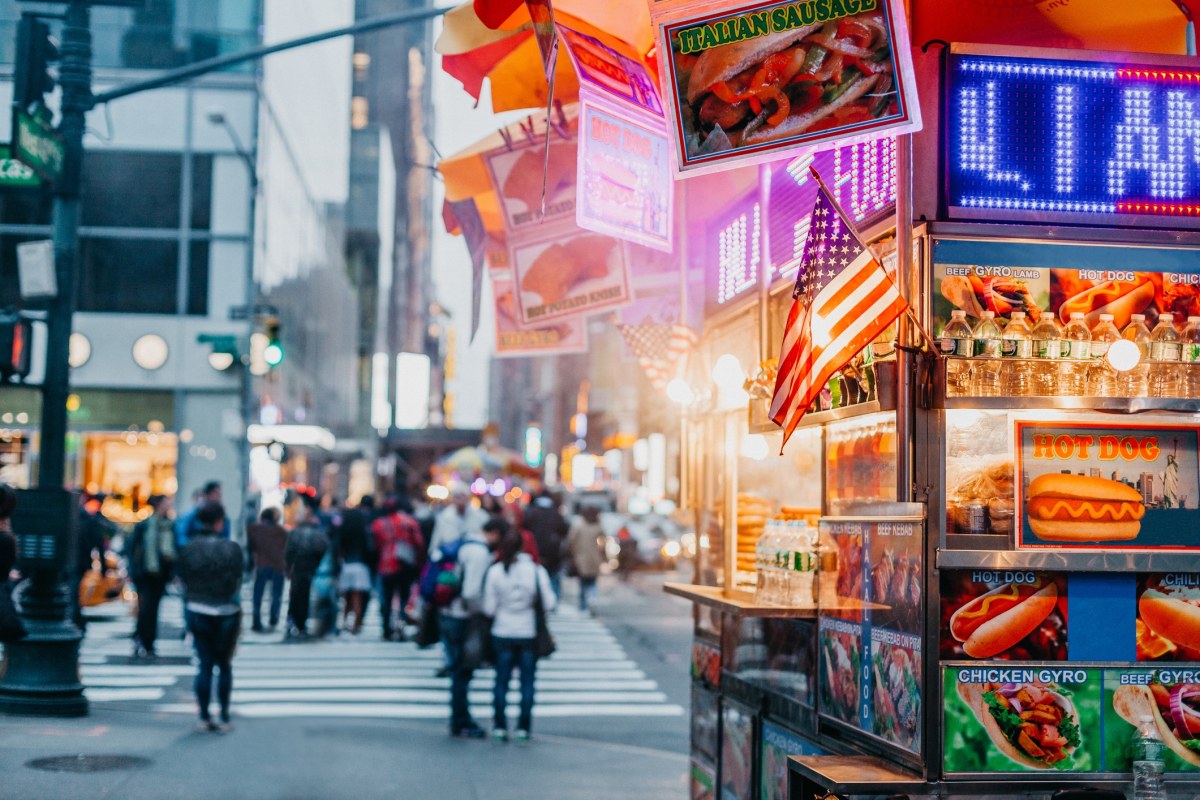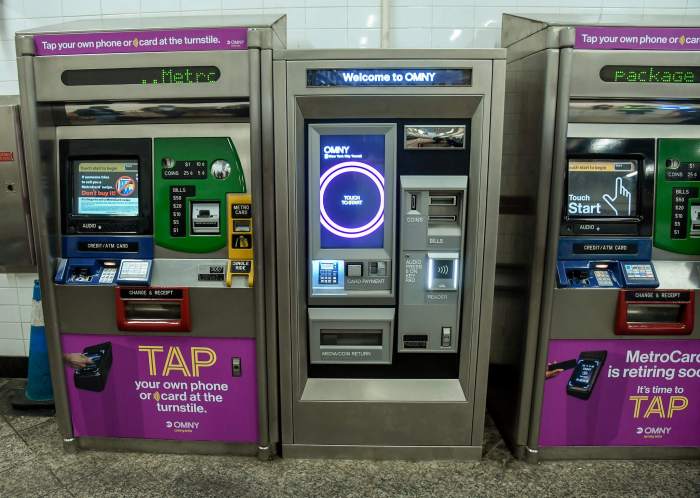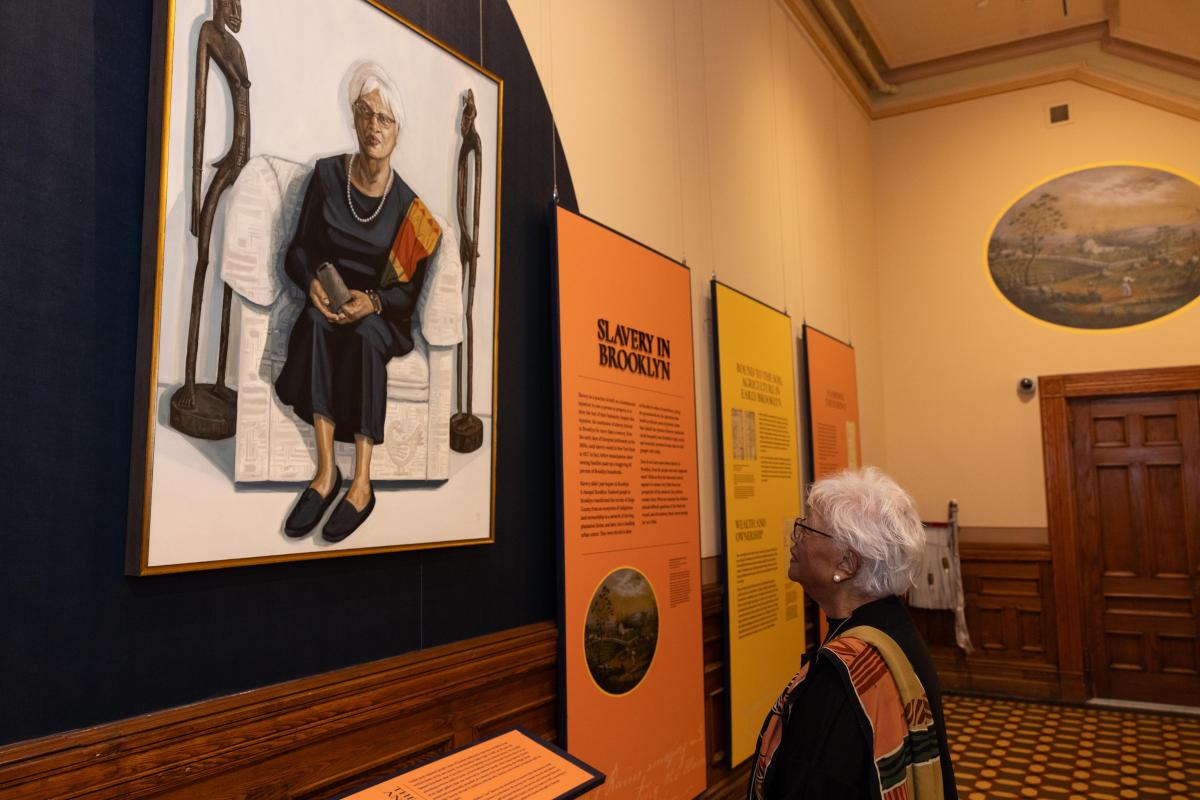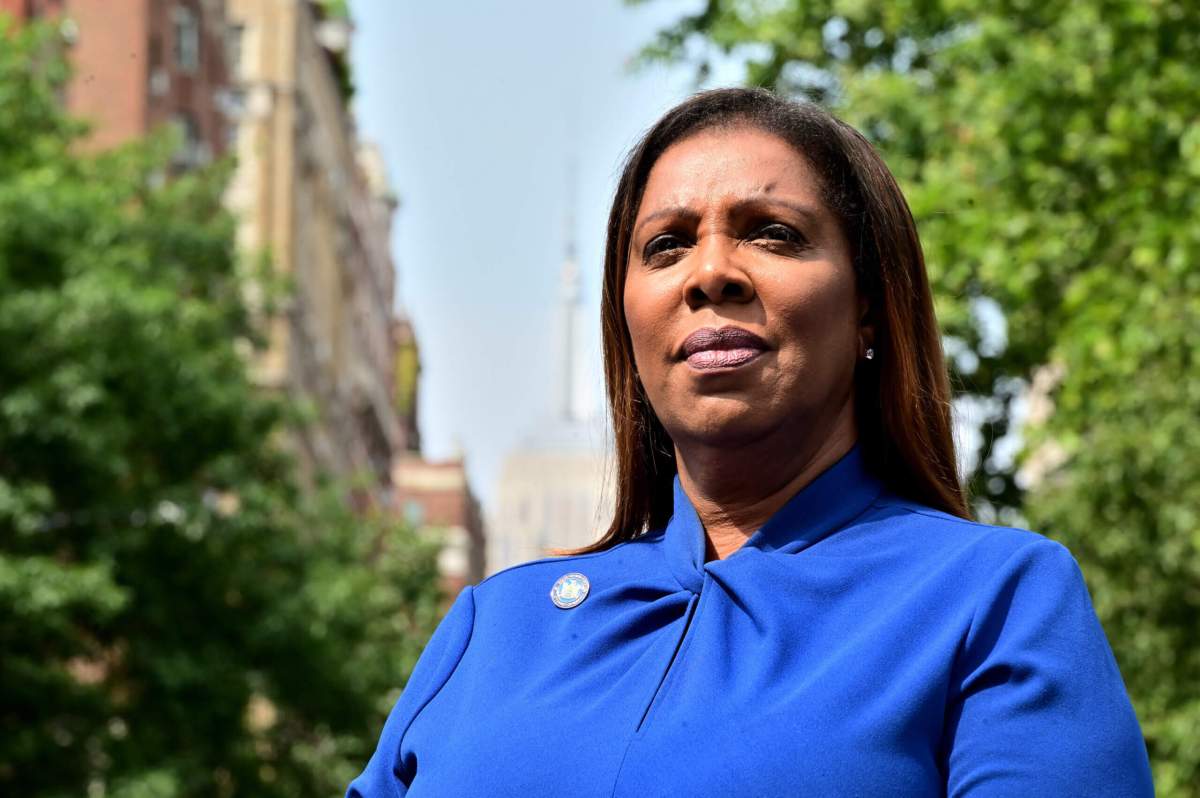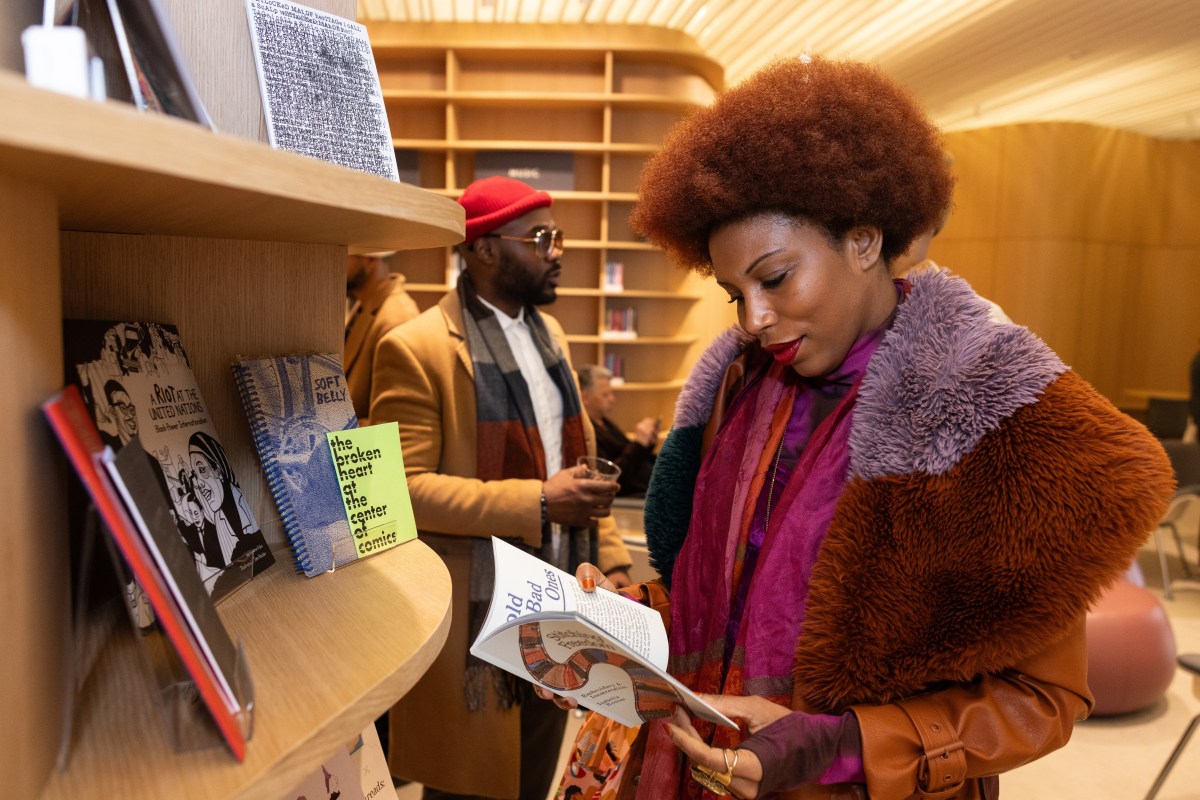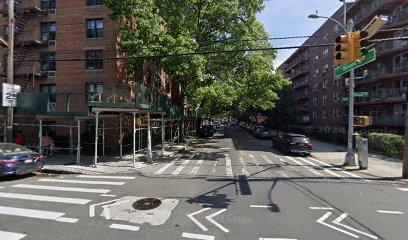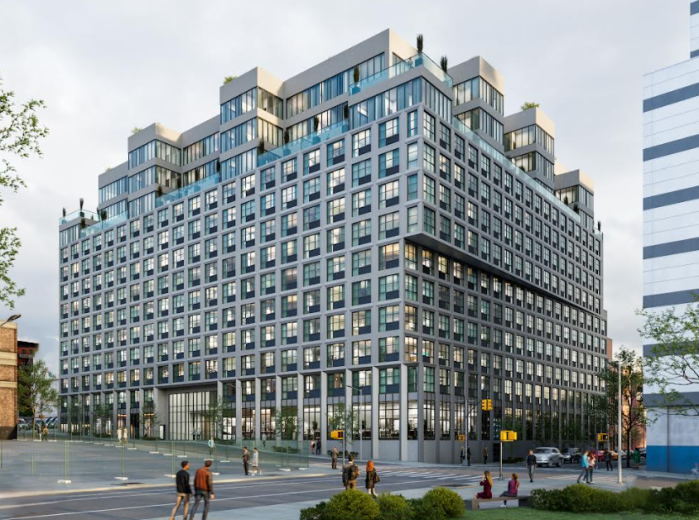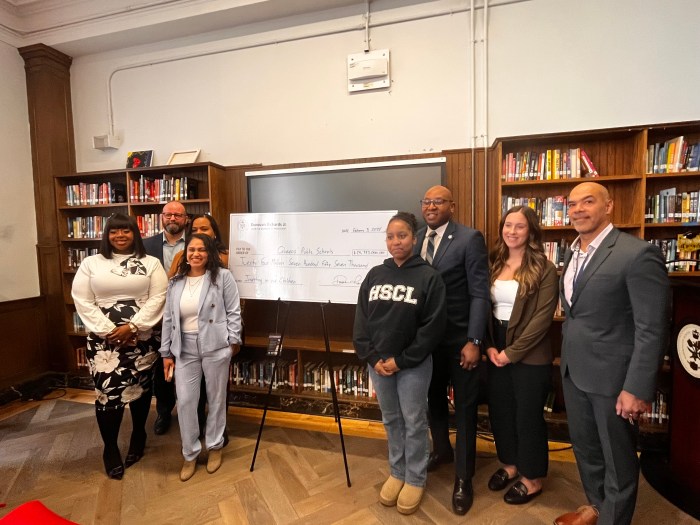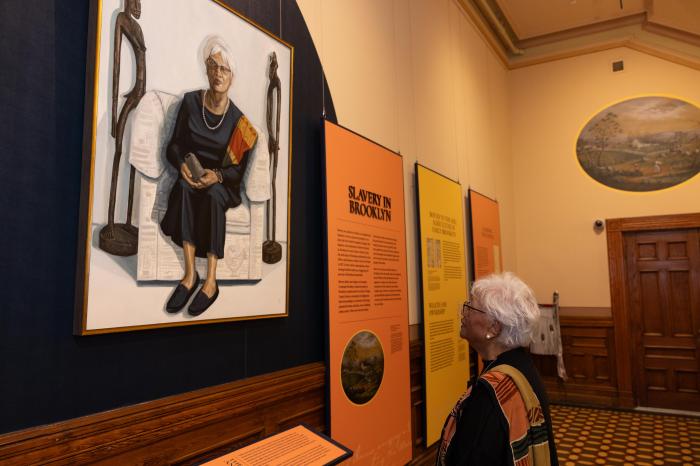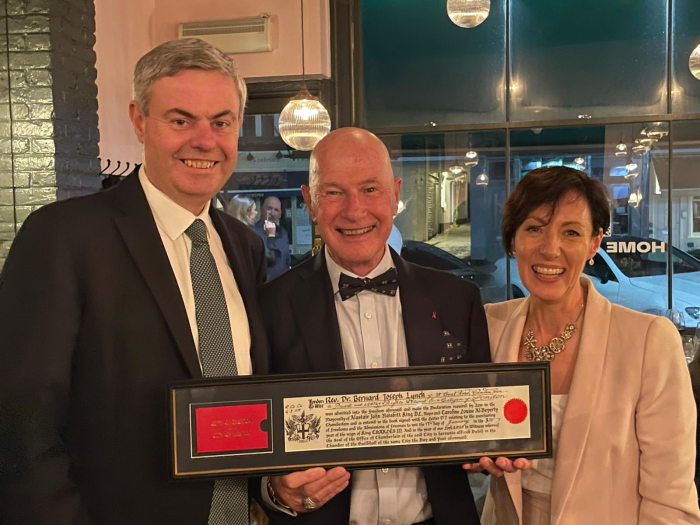Nearly 20,000 entrepreneurs – mostly immigrants, people of color, military veterans and women – are employed as street vendors in New York City. They all share the same dream: to support their families and create generational success in our city.
We would know. One of our grandfathers, Juan Flores or “Chiquito,” arrived in the Bronx from the Dominican Republic as a young man, and sold oranges in Washington Heights well into his 90s. For decades, anyone who wanted to see Chiquito or find out the latest in the neighborhood knew where to find him. He became part of the fabric of his community – just as street vendors have done in New York since 1866.
But vending today is more difficult, more dangerous, and a less certain way to make a decent living than it was for our grandparents. And across our city, more and more neighbors complain of issues with vending. It’s past time to change that.
This week, we will introduce legislation in the New York City Council to support New York’s smallest businesses. As Chairs of the Committee on Economic Development, Housing, and Labor, and as women raised in Upper Manhattan and the Bronx, we know how desperately reforms are needed to make this work sustainable and fair once again.
The biggest challenge is simply gaining access into the formal vending system. The number of general vendor licenses, required to sell merchandise, was capped in 1979 at 853 licenses. The number of mobile food vending permits, required for carts or trucks to sell food, was capped to roughly 3,000 in 1983 – when Juan Flores was selling oranges in Washington Heights.
This arbitrary limit created a punitive system. Would-be entrepreneurs are forced to either wait for decades in the hope of being called off the waitlist, rent a permit on the underground market for up to $25,000, or vend without one, facing recurrent $1,000 fines, harassment, and property confiscation. The waitlists for each license category have thousands of names. But it’s lucky to be on them at all; they’re closed to new applicants.
Our legislative package, crafted with help from nearly a dozen Council Members, would finally change that. One bill will bring all vendors into the formal economy by expanding access to permits; another will provide more straightforward regulations around where vending can take place. Council Members Shekar Krishnan, Shahana Hanif, and Public Advocate Jumaane Williams are leading on additional bills that will expand outreach to vendors and provide resources, instead of just enforcement, and repealing criminal liability for vending.
Our bill focused on vendor licensing would finally ensure all vendors can access licenses and permits. By making permits accessible to all who go through the licensing process, we can educate and more fairly enforce regulations. But the bill won’t just make our city fairer. It will unleash economic development in the parts of the city that need it most, increasing tax revenues in a moment of fiscal difficulties. According to a 2015 report by the Institute for Justice, street vending contributed almost $300 million to the city’s economy, and nearly $200 million in wages. New York City cannot afford to turn local economic engines into a bureaucratic nightmare any longer.
We understand the delicate balance required to integrate street vendors while safely and fairly providing access to our sidewalks. This is why our second bill improves regulation of the distance from the curbs vendors operate from, revising dated public siting rules out of step with the state of vending in the city. As we usher vendors into the formal economy, it comes with the responsibility of adhering to sensible restrictions.
These reforms could hardly be more timely. Asylum seekers coming to our city are arriving in need of all the support we can give them. They are desperate to find jobs – and if we continue to shove street vending underground, they will have an even more difficult time contributing to the fabric of our great city. This sector has always been a safe haven for new immigrants who wish to work hard and make New York more vibrant. Our City should not be getting in the way.
We are incredibly proud to lead this package of bills that will let vendors provide the services New Yorkers want – in a regulated, predictable, enforceable system – while giving them a real chance to build wealth. While we know that we have a long road ahead of us, we are grounded in the fact that this legislative package does right by our communities and will bring economic justice to so many New Yorkers.
Council Member Amanda Farias represents District 18 in the Bronx, and serves as Chair of the Committee on Economic Development and Co-Chair of the Women’s Caucus.
Council Member Pierina Ana Sanchez represents District 14 in the Bronx, and serves as Chair of the Committee on Housing and Buildings and Secretary of the Black Latino and Asian Caucus.
Council Member Carmen De La Rosa represents District 10 in Upper Manhattan, and serves as Chair of the Committee on Civil Service and Labor.



